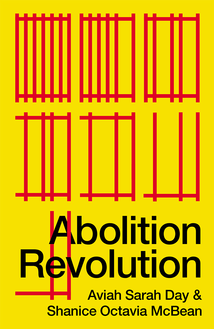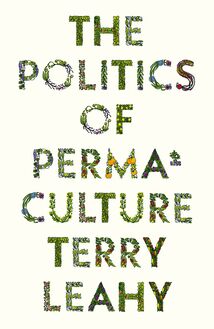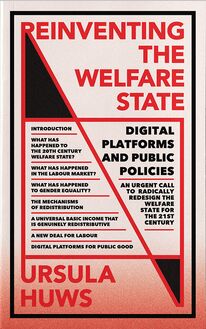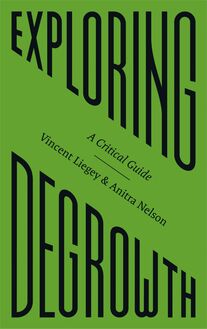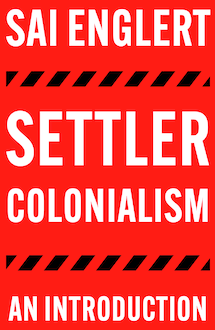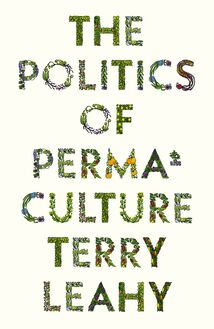Settler Colonialism , livre ebook
123
pages
English
Ebooks
2022
Vous pourrez modifier la taille du texte de cet ouvrage
Obtenez un accès à la bibliothèque pour le consulter en ligne En savoir plus
Découvre YouScribe en t'inscrivant gratuitement
Découvre YouScribe en t'inscrivant gratuitement
123
pages
English
Ebooks
2022
Vous pourrez modifier la taille du texte de cet ouvrage
Obtenez un accès à la bibliothèque pour le consulter en ligne En savoir plus
Publié par
Date de parution
20 septembre 2022
Nombre de lectures
1
EAN13
9780745344980
Langue
English
From the Palestinian struggle against Israeli Apartheid, to First Nations' mass campaigns against pipeline construction in North America, Indigenous peoples are at the forefront of some of the crucial struggles of our age. Rich with their distinct histories and cultures, they are connected by the shared enemy they face: settler colonialism.
In this introduction to the subject, Sai Englert highlights the ways in which settler colonialism has and continues to shape our global economic and political order. From the rapacious accumulation of resources, land, and labour, through Indigenous dispossession and genocide, to the development of racism as a form of social control, settler colonialism is deeply connected to many of today's social ills.
To understand settler colonialism as an ongoing process, is therefore also to start engaging with contemporary social movements and solidarity campaigns differently. It is to start seeing how distinct struggles for justice and liberation are intertwined.
Introduction
1. Settling the World
2. Indigenous Dispossession, Indigenous Resistance
3. The Birth of Race
4. Settler Class Struggle
5. Indigenous Resistance in the Present
Conclusion
Publié par
Date de parution
20 septembre 2022
Nombre de lectures
1
EAN13
9780745344980
Langue
English
Settler Colonialism
FireWorks
Series editors:
Gargi Bhattacharyya, Professor of Sociology, University of East London
Anitra Nelson, Associate Professor, Honorary Principal Fellow, Melbourne Sustainable Society Institute, University of Melbourne
Wilf Sullivan, Race Equality Office, Trade Union Congress
Also available
Empire s Endgame: Racism and the British State Gargi Bhattacharyya, Adam Elliott-Cooper, Sita Balani, Kerem Nisancioglu, Kojo Koram, Dalia Gebrial, Nadine El-Enany and Luke de Noronha
Reinventing the Welfare State: Digital Platforms and Public Policies Ursula Huws
The Politics of Permaculture Terry Leahy
Exploring Degrowth: A Critical Guide Vincent Liegey and Anitra Nelson
Pandemic Solidarity: Mutual Aid during the Covid-19 Crisis Edited by Marina Sitrin and Colectiva Sembrar
First published 2022 by Pluto Press
New Wing, Somerset House, Strand, London WC2R 1LA
www.plutobooks.com
Copyright Sai Englert 2022
The right of the Sai Englert to be identified as the author of this work has been asserted in accordance with the Copyright, Designs and Patents Act 1988.
British Library Cataloguing in Publication Data
A catalogue record for this book is available from the British Library
ISBN 978 0 7453 4497 3 Hardback
ISBN 978 0 7453 4490 4 Paperback
ISBN 978 0 7453 4500 0 PDF
ISBN 978 0 7453 4498 0 EPUB
This book is printed on paper suitable for recycling and made from fully managed and sustained forest sources. Logging, pulping and manufacturing processes are expected to conform to the environmental standards of the country of origin.
Typeset by Stanford DTP Services, Northampton, England
Simultaneously printed in the United Kingdom and United States of America
To No mi and all those who loved her. May her memory be a blessing.
Contents
Series Preface
Acknowledgements
Introduction
1 Accumulate, Accumulate!
2 Dispossessing the Native
3 Racism as Social Control
4 Striking Settlers
5 Liberation and Return
Notes
Index
Series Preface
Addressing urgent questions about how to make a just and sustainable world, the Fireworks series throws a new light on contemporary movements, crises and challenges. Each book is written to extend the popular imagination and unmake dominant framings of key issues.
Launched in 2020, the series offers guides to matters of social equity, justice and environmental sustainability. FireWorks books provide short, accessible and authoritative commentaries that illuminate underground political currents or marginalised voices, and highlight political thought and writing that exists substantially in languages other than English. Their authors seek to ignite key debates for twenty-first-century politics, economics and society.
FireWorks books do not assume specialist knowledge, but offer up-to-date and well-researched overviews for a wide range of politically-aware readers. They provide an opportunity to go deeper into a subject than is possible in current news and online media, but are still short enough to be read in a few hours.
In these fast-changing times, these books provide snappy and thought-provoking interventions on complex political issues. As times get dark, FireWorks offer a flash of light to reveal the broader social landscape and economic structures that form our political moment.
Acknowledgements
A book can only be the outcome of numerous collective processes - whether in terms of its production, or of the ideas it contains. It is not possible to name (or even identify) every one of the participants in these shared efforts, but I am nonetheless indebted to them all. There are also many specific people who have generously given me their time, help, insights and support. I want to take this opportunity to thank them from the bottom of my heart. Without them, this book would not have seen the light of day, and the quality of its content would have suffered considerably. It goes without saying that all remaining shortcomings are mine and mine alone.
First and foremost, I want to thank the Firework editors, Gargi Bhattacharyya and Anitra Nelson for trusting me to write this book and contribute to their series, as well as for their comments on earlier drafts. Gargi in particular deserves all my gratitude for her encouragement, detailed feedback, and the several hour-long phone conversations without which the manuscript would never have made it across the finish line. I am also grateful to David Castle and the whole Pluto team for all their work in putting the book together.
In addition, several colleagues and friends have taken the time to read the draft, in whole or in part, and shared their insights with me. They have not only considerably improved the present book in doing so, they have also given me the confidence to keep going when the writing got tough. My deepest thanks go to Ashok Kumar, Heba Taha, Jamie Woodcock and Tanzil Chowdhury for their generosity and comradeship.
In addition, Chiraz Hassoumi has been a wonderful student assistant. I am very grateful to her for her careful reading of several drafts of the book and her insightful feedback. Angus McNelly, Cristiana Strava, Jeff Webber and Ma a Pal generously shared books and articles with me, and expanded my knowledge significantly in doing so. Thank you to all of them. I only wish the lack of time and my limited reading speed had not prevented me from engaging with the material they suggested in greater detail.
A special word of thanks also to those who patiently listened to me complain, hesitate, doubt and work through the challenges I faced during the writing process, before kindly encouraging me and getting me back to work. Hannah Dee deserves a very special mention here. Being able to count on her calming advice and hilarious insights into my crisis management models is one of the great blessings in this life. I am also indebted to every member of KMN(PF) for their support and for filling my academic life with more moments of joy and hilarity than one is allowed to expect. Thank you all.
The ideas in this book are not only of academic concern, nor developed solely within the confines of university buildings. They are the outcome of endless discussions, debates and collective processes of political education. While it is not possible for me to name them all, I am profoundly thankful to all the activists I have had the honour to organise alongside over the years. In particular, I want to express my deepest gratitude to all the socialists, Palestine solidarity and anti-casualisation activists, that I ve worked with in Brighton, London and Leiden, and who have made the world feel like a better place and the struggle feel worthwhile. I hope you will find some of yourselves in these pages.
Finally, I have not gone through this process alone. I have been blessed with the love, comradeship and support of Malia Bouattia throughout - both in our shared life, as well as in our political pursuits. Words do not suffice to express the depth of my gratitude, but I also dedicate these pages to her. She knows, much more than most, the cost of fighting back.
Introduction
On 2 May 2021, a crew of five members of the Zapatista Army of National Liberation (EZLN) set sail for Spain. To mark 500 years since the beginning of the Spanish colonisation of Mexico, the majority Indigenous Maya movement was launching what it called an invasion in reverse. However, an EZLN spokesperson noted that this invasion would represent the exact opposite of what happened five centuries before: We re following the route that they came from 500 years ago. However, unlike back then, i n this case, we re following the route to sow life. 1
As they disembarked on Spanish soil, Marijose, a transgender member of the group, announced, in a sarcastic mirroring of the Spanish invaders naming and claiming of the Americas:
In the name of women, of children, of men, of elders and, of course, of other Zapatistas, I declare that the name of this land, which its natives today call Europe will henceforth be known as: SLUMIL K AJXEMK OP, which means Rebel Land , or, Land that doesn t yield, that doesn t fail . And thus it will be known by its inhabitants as well as by strangers as long as there is someone who will not abandon, who will not sell out, and who will not capitulate. 2
In a further inversion of the process of European settlement in the Western Hemisphere, the Zapatista envoys quarantined before leaving Chiapas in order to comply with COVID-19 regulations and avoid spreading disease as they arrived in Spain. While the trip and its declarations were primarily symbolic, the struggle that they represented is not. The voyagers were using the opportunity to raise awareness of their ongoing struggle for liberation from the Mexican state, and the connection between that fight and those waged by the oppressed and the exploited across the globe. In fact, the internationalist element of the EZLN s struggle is long-standing. The movement gained renown in 1994 when it launched an insurrection in Chiapas, Southern Mexico, that coincided with the signing of the North American Free Trade Agreement (NAFTA). In doing so, as the insurgency made clear, they resisted not only the Mexican state but also global processes of neoliberal reform, as well as US imperialism in Central America.
In the first communique about the invasion , in October 2020, which announced the group s intention to voyage to Europe, Subcomandante Insurgente Mois s noted the many ills that the contemporary socially sick world faces: ecological crisis, the systematic privileging of profit over people, femicides, the growth of nationalism, chauvinism and fascism, as well as war. 3 Yet, he also noted the ongoing resistances and rebellions that, even when silenced or forgotten, do not cease to be vital indicators of a humanity that refuses to follow the system s hurried pace toward collapse . 4 He placed the Zapatista struggle for liberation within t
